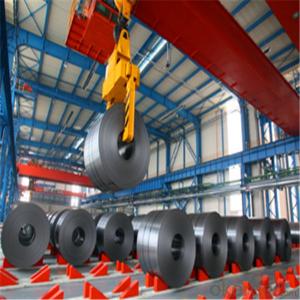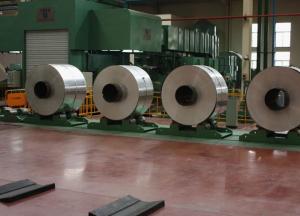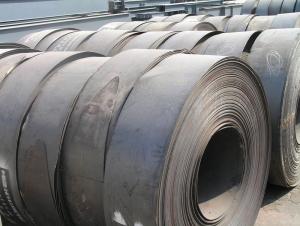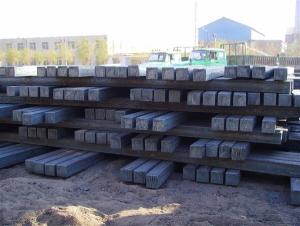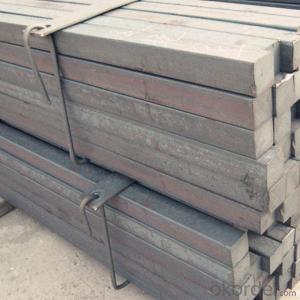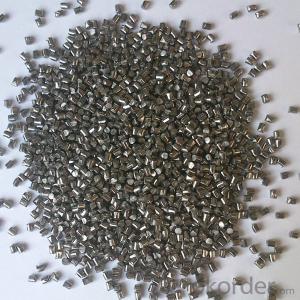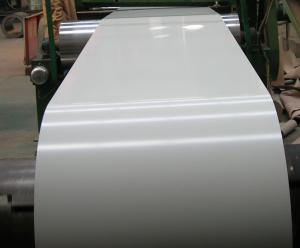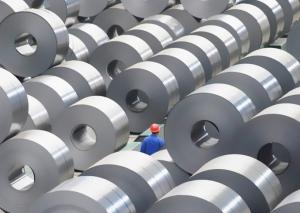Prime Quality SPCC Cold Rolled Steel Sheet/Coil in China
- Loading Port:
- China main port
- Payment Terms:
- TT OR LC
- Min Order Qty:
- 20 m.t.
- Supply Capability:
- 50000 m.t./month
OKorder Service Pledge
OKorder Financial Service
You Might Also Like
Item specifice
Prime Quality SPCC Cold Rolled Steel Sheet/coil
Widely used to appliance,automobile industry or other decoration usage.
Certificate: ISO9001
Packing Details: Wrapped by water proof paper and plastic film.Covered with iron sheet,strapped by steel strips to protect the damage under transportation.
Details please check following format
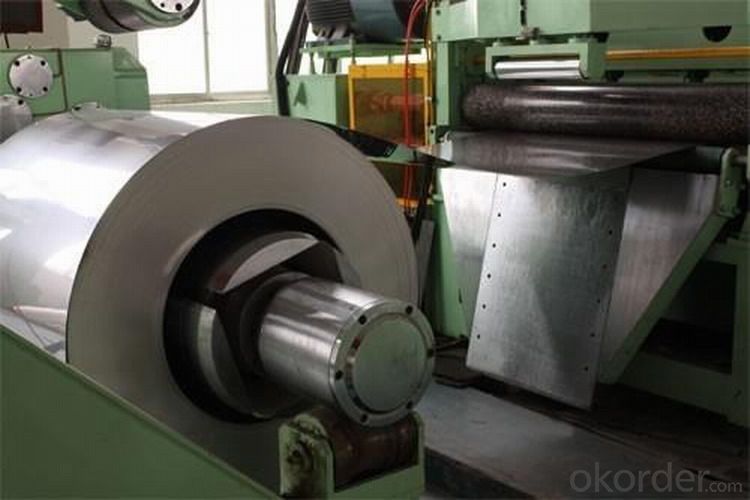
| Commodity | Stainless Steel Coil/Sheet/Strip |
| Grade NO. | 410S/430L/409 |
| Surface | 2B/BA/NO.4/Slit Edge/Mill Edge |
| Standard | JIS/GB |
| Material | Steel |
| Specification | Thickness: 0.2mm*2.0mm Width:10mm*850mm Tolerance:+/-0.02mm Coil Weight:Depond on clients |
| Technology | Cold Rolled |
| Certification | SGS |
| Application | Dinner set Kitchen ware Owner frame of security door Auto vent-pipe Vacuum cup Clean bucket water sink and so on. |
| Advantage | Attracting Price; High suface quality,clean; Good appearance of whole coil; First-rate service. |
| Package | Good Export packing/Package |
| Delivery | Within 15-20 days |
| Payment | T/T, L/C |
| Shipment | FOB/CFR/CIF/EXW |
| Productivity | 4000MT/month |
| Note | We can accept clients' any requirements as much as possible. |
1. Q: Where is your company located? How can I visit there?
A: Our company is located in Beijing, China. Welcome to visit us.
2. Q: Can I get sample and how long will it take?
A:Yes. We can supply sample. And you need to pay for courier.
3. Q: What's the MOQ?
A: Our MOQ is 25mt.
4. Q: What's the delivery time?
A: It will take about 30 days after TT or L/C.
5. Q: What is the payment terms?
A: T/T, L/C at sight
6. Q: How does your factory carry out quality control?
A: We attach great importance to quality control.Every part of our products has its own QC.
7. Q: What certificate do you have?
A: We have SGS, ISO9001 etc.
- Q:How do steel products contribute to the construction of theme-based botanical gardens?
- Steel products contribute to the construction of theme-based botanical gardens by providing the necessary structural support and durability. Steel beams and columns are used to create large and intricate structures such as greenhouse frames, walkways, and bridges, allowing for the creation of unique and aesthetically pleasing designs. Additionally, steel is resistant to corrosion and can withstand extreme weather conditions, ensuring the longevity of the botanical gardens.
- Q:How is steel used in the manufacturing of storage tanks?
- Steel is commonly used in the manufacturing of storage tanks due to its durability, strength, and resistance to corrosion. It provides a sturdy structure that can withstand high pressures and extreme weather conditions. Steel tanks can be fabricated in various sizes and shapes to accommodate different storage needs, making them versatile for storing various substances such as water, oil, chemicals, and gases.
- Q:What are the properties of corrosion-resistant steel for marine applications?
- Corrosion-resistant steel for marine applications possesses properties such as high levels of chromium and nickel, which provide excellent resistance to corrosion caused by saltwater exposure. It also has a protective oxide layer that forms on the surface, preventing further oxidation. Additionally, it exhibits high strength and durability, making it ideal for withstanding harsh marine environments.
- Q:How are steel products used in the manufacturing of machinery?
- Steel products are commonly used in the manufacturing of machinery due to their strength, durability, and versatility. They are used to create various components such as frames, gears, shafts, and bearings, which are crucial for the functionality and structural integrity of machinery. Steel's high tensile strength makes it ideal for handling heavy loads and withstanding intense forces, ensuring the machinery can operate efficiently and safely. Additionally, steel's ability to be easily shaped and formed allows for complex designs and precise manufacturing, further enhancing the performance and reliability of machinery.
- Q:What are the different types of steel forgings and their applications in the defense industry?
- There are various types of steel forgings used in the defense industry, including carbon steel forgings, alloy steel forgings, and stainless steel forgings. Carbon steel forgings offer excellent strength, toughness, and wear resistance, making them suitable for applications such as weapon components, tanks, and armored vehicles. Alloy steel forgings provide enhanced strength, durability, and corrosion resistance, making them ideal for applications like aircraft landing gear, missile components, and submarine parts. Stainless steel forgings are known for their excellent corrosion resistance and high strength, making them suitable for applications such as naval vessels, submarines, and aircraft components exposed to harsh environments. Overall, steel forgings play a critical role in the defense industry by providing essential components that ensure the reliability and performance of various defense systems and equipment.
- Q:What are the advantages of using steel bars in construction?
- There are several advantages of using steel bars in construction. Firstly, steel bars are incredibly strong and have a high tensile strength, making them ideal for reinforcing concrete structures and providing stability. Secondly, steel bars are resistant to corrosion, which ensures the longevity and durability of the construction. Additionally, steel bars are versatile and can be easily shaped and molded according to the needs of the project. Moreover, steel bars are readily available in the market and have consistent quality standards, ensuring reliability in construction. Lastly, using steel bars in construction allows for faster construction timelines as they can be prefabricated off-site and easily transported to the construction site. Overall, the use of steel bars in construction offers strength, durability, versatility, and efficiency.
- Q:How is steel used in the production of agricultural machinery and equipment?
- Steel is commonly used in the production of agricultural machinery and equipment due to its high strength and durability. It is used in various components such as frames, bodies, and blades to provide the necessary structural integrity and resistance to the demanding conditions of agricultural operations. Steel's versatility allows for the fabrication of complex shapes and designs, enabling the machinery to efficiently perform tasks such as plowing, harvesting, and transporting crops. Additionally, steel's resistance to corrosion ensures that the equipment remains operational even in harsh outdoor environments.
- Q:What are the different types of steel rails and their applications?
- There are several types of steel rails commonly used in various applications. Some of the most common types include: 1. Light rails: These rails are typically used in light-duty applications, such as tramways, narrow gauge railways, or temporary tracks. They are relatively lightweight and offer flexibility for installation and maintenance. 2. Heavy rails: Heavy rails are designed for high-load applications, such as mainline railways or heavy industrial tracks. They are more robust and can withstand heavy traffic and large loads over long distances. 3. Crane rails: These rails are specifically designed for crane tracks and overhead cranes. They are constructed to handle the dynamic loads and stresses imposed by cranes, ensuring smooth movement and stability. 4. Grooved rails: Grooved rails are commonly used in urban transit systems, such as trams or light rail vehicles. They have a groove along the top surface that guides the wheels, providing additional stability and preventing derailments. 5. Flat-bottomed rails: These rails are widely used in standard railway tracks. They have a flat base that rests on the sleepers, providing stability and support for heavy trains. Flat-bottomed rails are typically used in mainline railways and high-speed tracks. 6. Switch and crossing rails: These rails are used at railway switches and crossings, where trains can change tracks or cross paths. They are designed with specific profiles to ensure smooth transitions and safe operations for trains. The applications of these steel rails vary depending on the specific type and its characteristics. However, they are crucial components in the construction of railway systems, tramways, industrial tracks, and crane tracks, providing the necessary support and stability for efficient and safe transportation of goods and passengers.
- Q:How is steel plate produced?
- Steel plates are produced through a process called steelmaking, where iron ore is melted in a blast furnace along with other elements like limestone and coke. This molten iron is then refined and converted into steel by removing impurities through various methods such as oxygen blowing or electric arc furnaces. The steel is then cast into slabs or billets, which are further rolled into desired thicknesses and shapes to produce steel plates.
- Q:What are the advantages of using steel wire?
- There are several advantages of using steel wire. Firstly, steel wire is incredibly strong and durable, making it suitable for a wide range of applications. It can withstand high tension and heavy loads without breaking or deforming easily. Secondly, steel wire has excellent corrosion resistance, particularly when it is galvanized or coated. This makes it ideal for outdoor use or in environments with high moisture or chemical exposure. Additionally, steel wire is highly flexible and can be easily manipulated into various shapes and forms, making it versatile for different purposes. Lastly, steel wire is cost-effective, as it is readily available and its production costs are relatively low compared to other materials. Overall, these advantages make steel wire a popular choice in industries such as construction, automotive, manufacturing, and agriculture.
1. Manufacturer Overview |
|
|---|---|
| Location | |
| Year Established | |
| Annual Output Value | |
| Main Markets | |
| Company Certifications | |
2. Manufacturer Certificates |
|
|---|---|
| a) Certification Name | |
| Range | |
| Reference | |
| Validity Period | |
3. Manufacturer Capability |
|
|---|---|
| a)Trade Capacity | |
| Nearest Port | |
| Export Percentage | |
| No.of Employees in Trade Department | |
| Language Spoken: | |
| b)Factory Information | |
| Factory Size: | |
| No. of Production Lines | |
| Contract Manufacturing | |
| Product Price Range | |
Send your message to us
Prime Quality SPCC Cold Rolled Steel Sheet/Coil in China
- Loading Port:
- China main port
- Payment Terms:
- TT OR LC
- Min Order Qty:
- 20 m.t.
- Supply Capability:
- 50000 m.t./month
OKorder Service Pledge
OKorder Financial Service
Similar products
New products
Hot products
Related keywords
